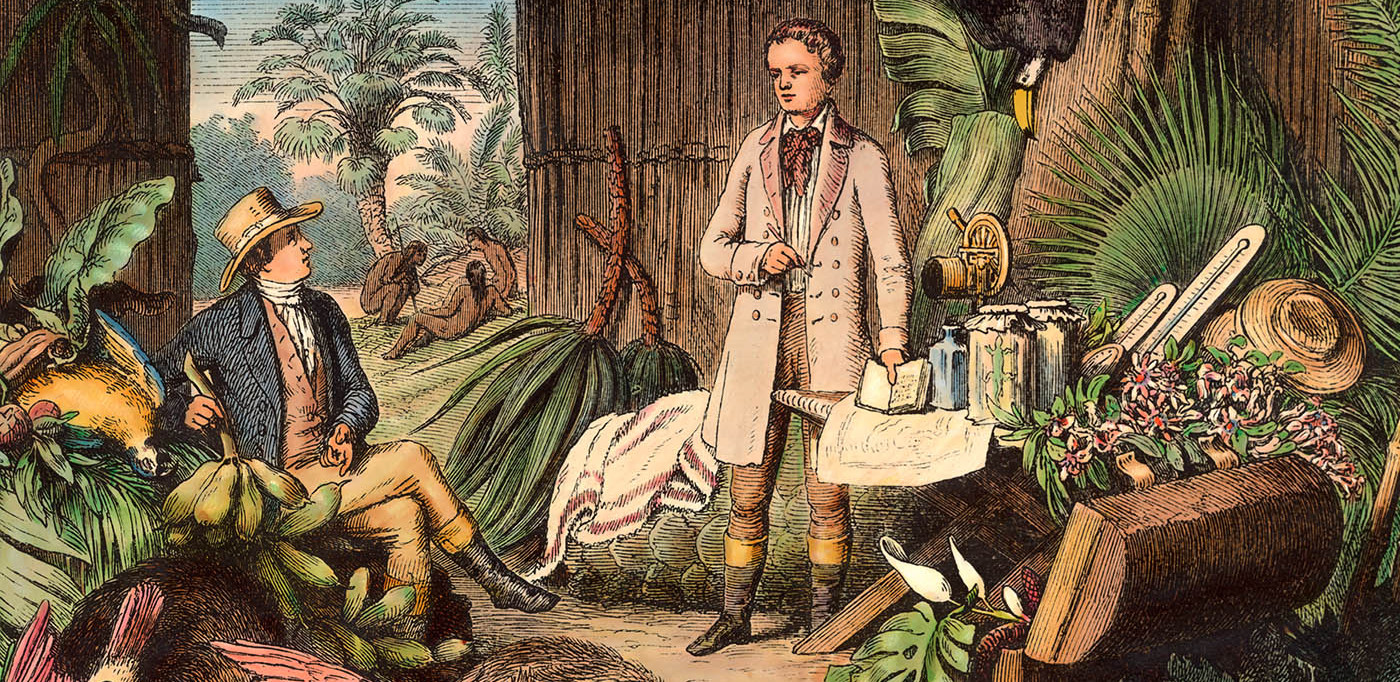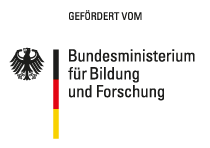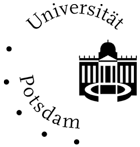About the Humboldt Portal
The Humboldt Portal of the Berlin State Library (Staatsbibliothek zu Berlin – Preußischer Kulturbesitz) provides information on the life and work of Alexander von Humboldt and related activities of the Berlin State Library and her partners. To researchers and all interested people, the portal offers an easy access to all personal papers of Alexander von Humboldt, including the most closely related American travel journals.
Alexander von Humboldt’s work did not only produce new scientific insights and systematically brought together the perspectives of different specialist disciplines. In times of dynamic changes in society and technology, which shaped Prussia and Europe in the first half of the 19th century, Humboldt also established and promoted an interdisciplinary and transnational knowledge network. His achievements were exceptional: in old age he still worked scientifically. He also had ample financial means for his extensive travels and research. And he had excellent social relations, which he was able to use for networking with researchers worldwide.
According to Alexander von Humboldt‘s testament, his personal papers were intended for further scientific analysis and until 1932 they were transferred to the former Prussian State Library. Currently, about two-thirds of the material is preserved in der Berlin State Library and – as a result of evacuations during World War II – about one-third is housed at the Cracow Jagiellonean Library. At the end of 2013 the Prussian Cultural Heritage Foundation, thanks to the generous support of public and private sponsors, was able to acquire the travel journals from Humboldt‘s heirs. Since then the Manuscript Department of the Berlin State Library has preserved the American travel journals as part of Alexander von Humboldt‘s personal papers collection.
In the framework of a cataloguing, classification, and digitization project as part of a joint project with the University of Potsdam and in cooperation with the Cracow Jagiellonean Library, Alexander von Humboldt’s complete personal papers have virtually been brought together in one place. Via the Humboldt portal they are entirely available to researchers and the general public worldwide.
Extract from: Woodcut (1870) of Otto Roth from a drawing by H. Lademann
Primeval forest laboratory – Animals killed and yet to be preserved, plants yet to be herborised; animals kept and preserved in spirit jars on the right.
© Copyright bpk – Bildagentur für Kunst, Kultur und Geschichte
The joint project „Alexander von Humboldt‘s American travel journals“
The Humboldt Portal is a result of the joint project „Alexander von Humboldt‘s American travel journals“ of the University of Potsdam and the Berlin State Library, sponsored by the Federal Ministry of Education and Research (Bundesministerium für Bildung und Forschung). From 2014 to 2017 two sub-projects of the project partners had a focus on researching, cataloguing, classifying, and digitizing the American travel journals of Alexander von Humboldt and his personal papers.
Travel journals are among the most crucial scientific and personal documents of the 19th century. The records Alexander von Humboldt wrote during his travels across South and Central America from 1799 – 1804 accompanied him throughout his life. The goal of this project is to use new research approaches to place the American travel journals in the cultural, political, social and academic context of the 19th century.
To this end, along with the American travel journals, the personal papers of Alexander von Humboldt housed at the Berlin State Library and the Jagiellonian Library in Cracow were catalogued, digitised and then presented to the public in their entirety.
Sub-project „Securing, textualization, digitization“ (Staatsbibliothek zu Berlin - Preußischer Kulturbesitz)
Only in conjunction with the complete personal papers can the relevance of the journals be understood.
Together with Alexander von Humboldt’s collected papers, the American travel journals form a unique source for the better understanding of his models of scientific knowledge and working methods. Among the approximately 1,600 estates housed in the Berlin State Library, Alexander von Humboldt’s body of work is one of the most important sources for the history of science in Europe. They have been catalogued for academic research in the Kalliope Union Catalogue, conserved and made available online through a digitised version of the personal papers and autograph manuscripts.
The collections contain documents from Humboldt’s entire life, primarily from the period from 1799 onwards. The papers in Berlin comprise some 22,000 pages. The collection in Cracow is half the size (approximately 11,000 pages) and has been catalogued, conserved and digitised in close collaboration with the Jagiellonian Library.
The letters, notes, articles, manuscripts, sketches and tables exemplify the scientist’s widely diversified fields of interest and working methods: folders in his own handwriting contain material on such varied subjects as slavery, astronomy, ocean currents, natural history, the history of humankind’s world view, mineralogy, the geography of plants, and ethnic classifications.
Project team at the Berlin State Library:
Barbara Schneider-Kempf (Project director)
Dr. Jutta Weber (Project manager)
Sandra Ewers (Coordination of the joint project)
Conny Wobst (Cataloguing Berlin)
Dominik Erdmann (Cataloguing Cracow)
Sub-Project "Genealogy, chronology, epistemology"
Humboldt’s American journey (1799 – 1804) is regarded by many as the first journey ever to serve purely scientific purposes and thus, from a historical perspective, may be regarded as one of the founding activities of modern science. Editing his observations in all their multitude and variety – observations which have been inaccessible until now – is therefore one of the major tasks of nineteenth century historiographical research. Moreover, Humboldt’s travel journals, with their numerous annotations, excerpts, tables, sketches, political reflections, hypotheses and drawings, form one of the most important pillars of his scientific work. They were the starting point for his travel book Voyage aux régions équinoxiales du Nouveau Continent (1805 – 1838), as well as source of material and reference for his work on Kosmos (1845 – 1862). With these original documents now available, exact research into the American travels will be possible.
The research group at the University of Potsdam consisting of an international team of PhD students and postdoctoral scholars examined the contents of the journals. The focus was on the representations of the landscape, the drawings and sketches as well as the description of slavery in the travel journals. The diary of a journey to Italy in 1805, bound into the travel journals, led to a comparative research on European and American nature and cultural tradition. These examinations have been a contribution to the historical reconstruction of Humboldtian science as well as to understanding it in the epistemological and historico-cultural context.
Project team at the University of Potsdam:
Prof. Dr. Ottmar Ette (Project director)
Dr. Julian Drews (Coordination of the research team)
Dr. Cettina Rapisarda (Postdoc)
Pauline Barral (PhD student)
Julia Bayerl (PhD student)
Aniela Mikolajczyk (PhD student)
Cooperation partners and project sponsors
Cracow Jagiellonian Library
The Berlin State Library and the Cracow Jagiellonean library closely cooperate. This is especially true for the cataloguing, classification, and digitisation of Alexander von Humboldt’s personal papers. Approximately half of the material is located in Poland, following its evacuation to Silesia during the Second World War. Since 1947 these holdings have been kept at the Jagiellonian Library in Cracow. The common objective of the two libraries was to evaluate, conserve, and make the collection available to the general public.
Project sponsorship by the German Federal Ministry of Education and Research
„Alexander von Humboldt’s American travel journals”, the joint project of the University of Potsdam and the Berlin State Library – Prussian Cultural Heritage, was sponsored by the German Federal Ministry of Education and Research. The sponsorship was divided into two sub-projects (Sponsorship Nos. O1UO1302A and O1UO1302B) for a duration of three years. The Federal Ministry of Education and Research had commissioned the sponsor at the Project Managing Agency at the German Aerospace Centre (Projektträger im Deutschen Zentrum für Luft- und Raumfahrt e. V.) to supervise this research project.
Sponsorship by the Federal Comissioner for Culture and the Media
The conservation and digitization of the personal papers today hosted in Cracow has been sponsored by the Federal Government Commissioner for Culture and the Media.
Funding the acquisition of the American travel journals
The purchase of Alexander von Humboldt’s American travel journals by the Prussian Cultural Heritage Foundation at the end of 2013 was made possible through financial commitment by numerous sponsors: the acquisition succeeded through support of representatives of the German Federal Government Commissioner for Culture and the Media, the German Federal Ministry of Education and Research, the Berlin Lottery Foundation, the German Federal Cultural Foundation, the Würth Group Foundation, the Hermann Reemtsma Foundation, the Volkswagen Foundation, Deutsche Bank AG, the Robert Bosch Foundation, the Gerda Henkel Foundation and the Fritz Thyssen Foundation. The Ernst von Siemens Art Foundation also participated by pre-financing a considerable sum of the project.





Abschluss des BMBF-Projekts: Humboldt-Nachlass vollständig online – Erste Forschungsergebnisse
Die Pressereaktionen auf den Abschluss des BMBF-Verbundprojekts waren groß. Mit einer zweitägigen Konferenz wurde die vollständige Digitalisierung und virtuelle Zusammenführung des in Berlin und Krakau verwahrten Nachlasses Alexander von Humboldts sowie erste Forschungsergebnisse zu seinen 2013 erworbenen Amerikanischen Reisetagebüchern gefeiert. Humboldts Worte “Ideen können nur nützen, wenn sie in vielen Köpfen lebendig werden” waren das Motto der […]
Ideen können nur nützen, wenn sie in vielen Köpfen lebendig werden.
Abschlusskonferenz des BMBF-Verbundprojekts „Alexander von Humboldts Amerikanische Reisetagebücher“ der Universität Potsdam und der Staatsbibliothek zu Berlin – Preußischer Kulturbesitz 17.-18. Januar 2017 in der Staatsbibliothek zu Berlin – Preußischer Kulturbesitz Alexander von Humboldt, weltreisender Berliner und vernetzender Europäer, Sammler und Forscher – sein transdisziplinäres und aufklärerisches Wirken für Kultur und Wissenschaft stehen im Zentrum der Abschlusskonferenz des BMBF-Verbundprojekts […]
Vertical Thinking in the Time of Humboldt
Im Blog der Staatsbibliothek zu Berlin schreibt Patrick Anthony (Vanderbilt University) über das vertikale Denken in der Zeit Alexander von Humboldts.
3. Potsdamer Humboldt-Symposion
“Landschaften & Kartographien der Humboldtian Science” am 9. und 10. November 2016 im Haus der Brandenburgisch-Preußischen Geschichte in Potsdam